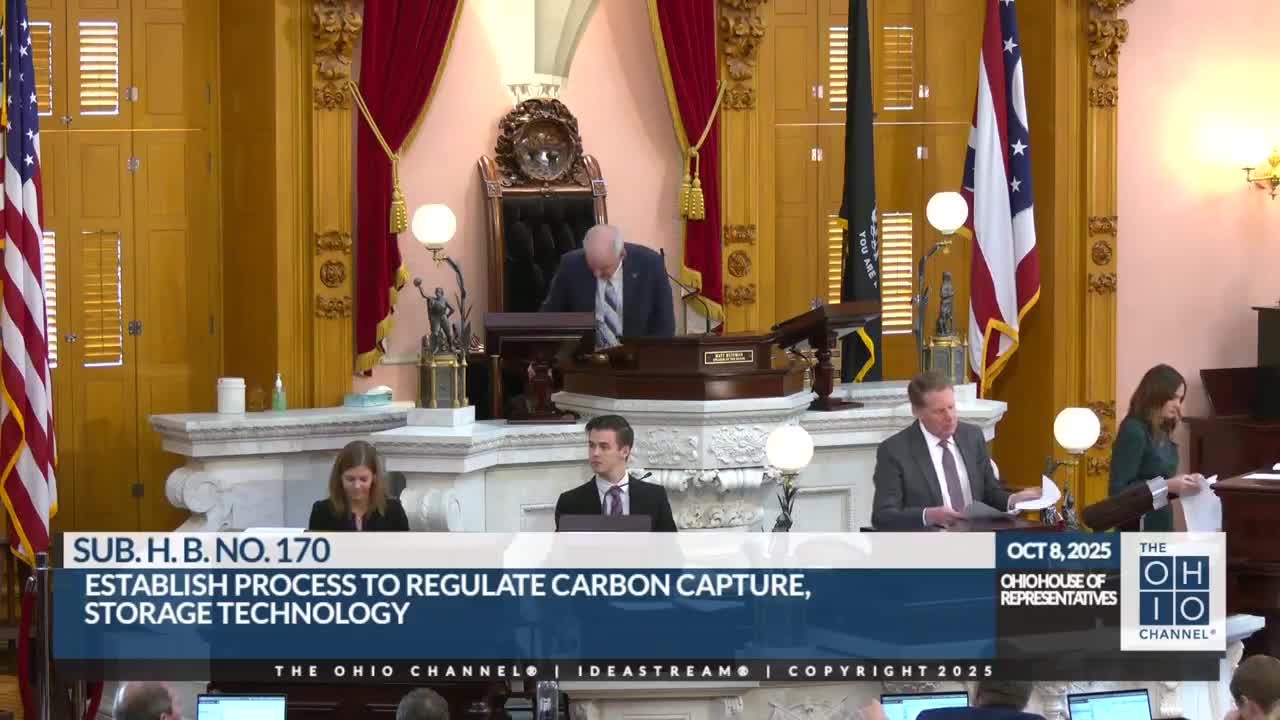House approves bill to create Ohio regulatory framework for carbon capture and storage
Get AI-powered insights, summaries, and transcripts
Subscribe
Summary
Substitute House Bill 170 passed the Ohio House on Oct. 8, establishing state-level permitting and regulatory authority for carbon capture and geological storage projects; sponsors said the move aims to allow Ohio to assume federal primacy and attract energy investment.
The Ohio House on Oct. 8 passed substitute House Bill 170, which creates a state regulatory framework for carbon capture and geological sequestration projects and allows Ohio to assume permitting authority for such facilities.
“Carbon capture and storage, or CCS, allows us to capture carbon dioxide from industrial sources and store it safely underground,” Representative Rob Blaisdell told the chamber. He argued that the bill would let Ohio “assume regulatory primacy,” shortening permit timelines that otherwise go through the U.S. Environmental Protection Agency.
Representative Peterson, a joint sponsor, said the bill “strikes a balance, enabling innovation and investment in climate technology, while protecting environmental and public interests” and urged colleagues to support the measure so “Ohio can take charge of this process responsibly, efficiently, and with common sense.” The sponsor and others noted other states such as North Dakota, Louisiana and West Virginia have taken similar approaches and are attracting jobs and investment.
Supporters described Ohio’s geology, workforce and industrial base as well positioned to host CCS projects; opponents were not recorded on the floor in the transcript. Committee testimony and a committee vote were referenced; one member said the substitute had passed the committee 9–1 before floor consideration.
The House roll call totaled 91 affirmative votes and 4 negative votes. With the constitutional majority achieved, the House passed the substitute bill and agreed to its title. The bill will now be transmitted to the Senate for consideration.
The transcript records sponsors thanking staff and outside parties who advised on technical language and permitting details. The record does not include final permit terms or site-specific approvals; those would be set under the bill’s rulemaking and permitting processes.
